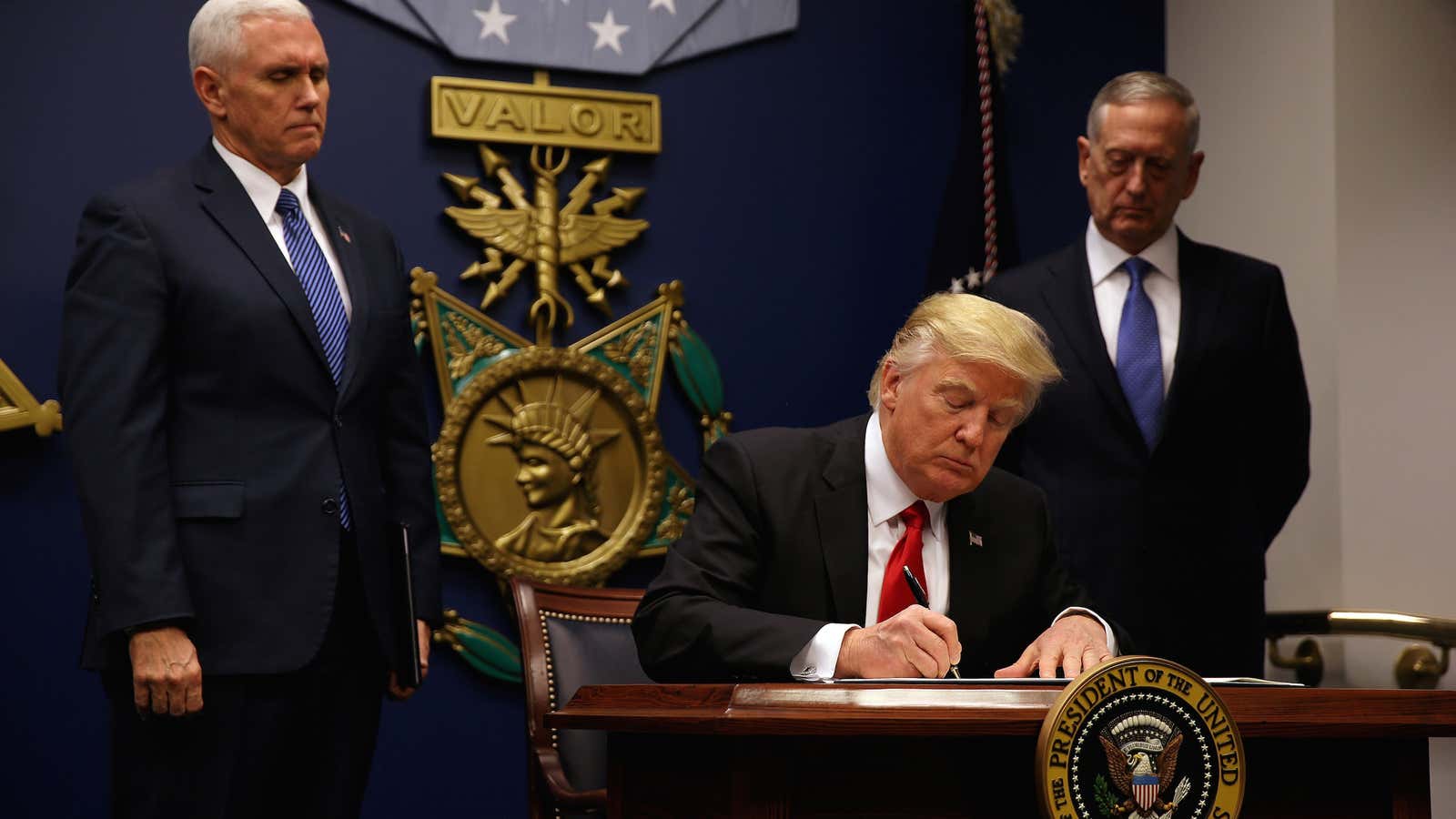Yesterday, newly elected US president Donald Trump made good on one of his most controversial campaign promises when he signed an executive order that, among other things, temporarily bars the entry to the US of people from seven Muslim-majority countries: Iraq, Syria, Iran, Libya, Yemen, Sudan, and Somalia.
The order is presumably the first step in the “extreme vetting plan” Trump has promised, to block “radical Islamic terrorists” from entering the United States. The president told Christian Broadcast News that the plan would prioritize Christians and other refugees from “minority religions” over Muslims from those countries.
That puts the order in direct violation of the Establishment Clause of the US Constitution, which explicitly forbids the government from preferential treatment of any religion over another, says David Cole, a professor at Georgetown University Law Center and an attorney with the Center for Constitutional Rights. He cites the 1982 decision known as Larson v. Valente, in which the US Supreme Court confirmed that “the clearest command of the Establishment Clause is that one religious denomination cannot be officially preferred over another.”
Trump’s order does not expressly articulate a policy of favoring Christians over Muslims, “But Trump is the signatory, and he has said so explicitly,” Cole writes. “Moreover, even absent that evidence of Trump’s invidious intent, the order on its face favors refugees from ‘minority religions’ over those from ‘majority religions’ in any given country. That distinction independently violates the principle of denominational neutrality, even if in some countries it means we will be privileging Christians and in other countries Muslims.”
The decision in Larson has one caveat—denominational discrimination may be justified where the government has a “compelling” interest. No doubt the Trump administration will argue that the interest at hand is preventing terrorists from entering the United States pretending to be refugees or asylum-seekers. Nevermind that even without such policies US deaths caused by Muslim extremism make up a minuscule portion (pdf, p.2) of the country’s murders.
Civil-rights advocacy organizations are already moving to get Trump’s order overturned. The American Civil Liberties Union (ACLU) has filed suit on behalf of two Iraqi refugees held at New York’s John F. Kennedy International Airport in response to the order, which they say violates principles of due process and equal protection, as well as current US immigration law. The ACLU has also filed for class certification, which, if granted, would allow the organization to represent all Muslim refugees and other entrants to the United States being detained or denied entry under the authority of Trump’s order.
